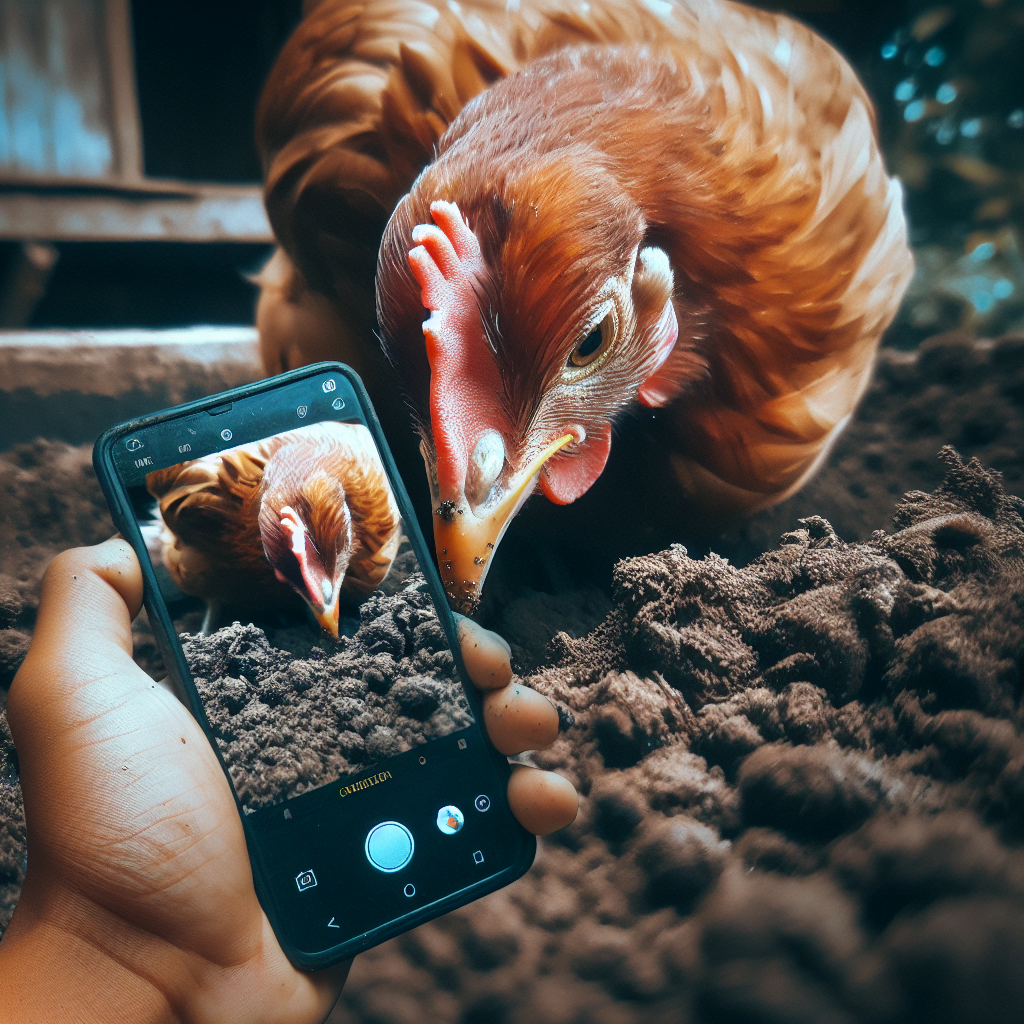In the article, “How Do Organic Farming Practices Align With Ethical Considerations In Poultry Farming?” we explore the intersection between organic farming practices and the ethical considerations that arise in poultry farming. With a friendly tone, we will delve into the ways in which organic farming methods can uphold ethical standards, ensuring the welfare of the chickens, reducing environmental impact, and promoting sustainable practices.
The Importance of Ethical Considerations in Poultry Farming
Poultry farming encompasses the raising of chickens, turkeys, ducks, and other domesticated birds for the purpose of meat and egg production. As consumers become more conscious about the sources of their food, there is a growing demand for poultry products that adhere to ethical considerations. These considerations primarily revolve around animal welfare, environmental impact, and health and safety. By integrating organic farming practices into poultry farming, ethical concerns can be effectively addressed, providing numerous benefits for both the animals and consumers.
Animal Welfare
Ensuring the well-being of animals is a fundamental ethical consideration in poultry farming. Organic farming practices emphasize the promotion of animal welfare by providing birds with access to outdoor areas and ample space for movement. By allowing poultry to roam freely and engage in natural behaviors like foraging, organic farming helps to improve their overall physical and mental health. Additionally, organic poultry farming prohibits the use of antibiotics and growth hormones, minimizing potential harm to the birds and reducing the risk of antibiotic resistance in humans.
Environmental Impact
The environmental impact of poultry farming is another crucial ethical consideration. Conventional farming practices often involve the excessive use of synthetic fertilizers, pesticides, and genetically modified organisms (GMOs), which can have detrimental effects on ecosystems and biodiversity. Organic farming practices, on the other hand, prioritize the conservation of soil through methods such as crop rotation and composting. By minimizing chemical use and focusing on natural and sustainable farming techniques, organic poultry farming significantly reduces its overall environmental footprint.
Health and Safety
The health and safety of both the animals and consumers are vital ethical concerns in poultry farming. Organic farming practices prioritize the production of safer and healthier food products. By abstaining from the use of chemical additives, synthetic pesticides, and genetically modified feed, organic poultry farming eliminates the risk of chemical residues in the final products. Furthermore, organic certification standards require strict controls and traceability, ensuring that consumers can have confidence in the integrity and safety of organic poultry products.
Understanding Organic Farming Practices
To fully comprehend the alignment between organic farming practices and ethical considerations in poultry farming, it is important to understand the principles, definition, and certification standards of organic farming.
Definition of Organic Farming
Organic farming can be defined as a holistic approach to agricultural production that values and prioritizes the health of the ecosystem, the animals, and the people involved. It aims to minimize the use of synthetic chemicals, promote biodiversity, and maintain the fertility of the soil. Organic farming practices are based on principles that prioritize sustainability, natural processes, and the overall well-being of the environment and its inhabitants.
Organic Certification Standards
Organic farming practices are regulated and certified by various organizations worldwide. These standards outline the requirements and guidelines that farmers must follow to obtain organic certification. The certification process typically involves periodic inspections, verifying compliance with organic regulations. These regulations are designed to ensure that organic farmers comply with strict guidelines regarding the use of synthetic chemicals, animal welfare, and environmental preservation.
Principles of Organic Farming
Organic farming is guided by a set of principles that form the foundation of ethical considerations. These principles include:
-
Ecological Balance: Organic farming strives to create a harmonious and balanced ecosystem by promoting biodiversity and natural processes.
-
Soil Health: Organic farmers prioritize maintaining and improving soil fertility through techniques such as composting, crop rotation, and the use of natural fertilizers.
-
Animal Welfare: Organic farming emphasizes the ethical treatment of animals, providing them with access to outdoor spaces, comfortable living conditions, and natural feed options.
-
Prohibition of Synthetic Chemicals: Organic farming strictly prohibits the use of synthetic fertilizers, pesticides, herbicides, and genetically modified organisms.
-
Traceability and Transparency: Organic farming ensures the traceability of products throughout the production process, promoting transparency and consumer confidence.
Organic Farming Practices and Ethical Considerations
By adopting organic farming practices, poultry farmers can address ethical considerations regarding animal welfare, environmental impact, and health and safety.
Promoting Animal Welfare
Organic poultry farming goes beyond mere compliance with minimum welfare standards. It strives to provide birds with the opportunity to engage in natural behaviors and live in conditions that uphold their well-being. This includes providing access to outdoor areas where they can roam freely, forage for food, and exhibit natural behaviors. Organic farms also prioritize the use of natural feed and foraging options to support the overall health and vitality of the birds. Furthermore, by abstaining from the use of antibiotics and growth hormones, organic poultry farming ensures that the birds are raised without the potential negative effects of these substances.
Reducing Environmental Impact
One of the key advantages of organic poultry farming lies in its ability to significantly reduce its environmental impact compared to conventional farming practices. Organic farmers implement a range of practices that prioritize the conservation of soil, such as composting, crop rotation, and the use of organic fertilizers. These practices help to maintain soil health and minimize erosion, reducing the risk of nutrient runoff into water bodies. Water conservation is another area where organic farming excels, as it avoids chemical inputs that can pollute waterways. Additionally, organic poultry farming helps reduce greenhouse gas emissions by focusing on natural feed options and avoiding synthetic chemical use.
Providing Safer Food Products
Organic poultry farming is committed to offering consumers safer and healthier food products. By strictly adhering to organic certification standards, organic farmers eliminate the use of chemical additives, synthetic pesticides, and genetically modified feed. This greatly reduces the potential for chemical residues in the final poultry products, ensuring that consumers can enjoy food that is free from harmful substances. Moreover, the practice of traceability and strict controls throughout the production process enhances food safety and transparency, giving consumers peace of mind when purchasing organic poultry products.
Promoting Animal Welfare in Organic Poultry Farming
Ensuring the well-being of the birds is a primary ethical consideration in organic poultry farming. Organic farming practices implement several measures to promote animal welfare.
Access to Outdoor Areas
Organic poultry farming guarantees that birds have access to outdoor areas where they can engage in natural behaviors and obtain essential nutrients. This access to outdoor spaces allows the birds to exercise, bask in natural sunlight, and engage in natural social interactions with their flock mates. It also provides them with opportunities for mental stimulation and reduces stress levels, positively impacting their overall health and well-being.
Natural Feed and Foraging
Organic poultry farming prioritizes the use of natural feed options, which are free from synthetic additives, pesticides, and genetically modified ingredients. This ensures that the birds receive a balanced diet that meets their nutritional needs without exposing them to potentially harmful substances. Organic farmers also encourage foraging by providing birds with access to pasture or outdoor areas, where they can naturally search for insects, worms, grass, and other food sources. Foraging not only contributes to the natural behaviors of the birds but also enhances the nutritional content of their diet.
No Use of Antibiotics or Growth Hormones
One of the key ethical considerations in organic poultry farming is the prohibition of antibiotics and growth hormones. Organic poultry farmers rely on preventive measures, such as ensuring proper nutrition, good hygiene, and appropriate living conditions, to minimize the risk of disease outbreaks. By eliminating the routine use of antibiotics and growth hormones, organic farming reduces the potential negative impacts on animal health and welfare. It also helps reduce the risk of antibiotic resistance, safeguarding both animal and human health.
Reducing Environmental Impact through Organic Poultry Farming
Organic poultry farming practices play a significant role in minimizing the environmental impact associated with poultry production.
Conservation of Soil
By practicing organic farming methods, poultry farmers can prioritize soil conservation. Organic farms rely on techniques such as crop rotation, cover cropping, and the application of compost and organic fertilizers to improve soil health and fertility. These practices help retain moisture, prevent erosion, and enhance nutrient cycling, ensuring the long-term viability and productivity of the soil. The organic approach also avoids the use of synthetic fertilizers and pesticides, which can have harmful effects on soil microorganisms, water quality, and overall ecosystem health.
Water Conservation
Water conservation is a crucial environmental consideration in poultry farming. Organic farming practices minimize water wastage by employing efficient irrigation methods, optimizing water use, and avoiding the contamination of water sources with synthetic chemicals. The absence of synthetic chemical inputs, such as fertilizers and pesticides, reduces the risk of water pollution and helps maintain the quality of water bodies. Therefore, organic poultry farming contributes to safeguarding water resources and maintaining healthy aquatic ecosystems.
Lower Greenhouse Gas Emissions
Another significant benefit of organic poultry farming is the reduced emissions of greenhouse gases. Organic farms prioritize the use of natural and organic feed options, minimizing the reliance on energy-intensive inputs associated with conventional farming methods. Additionally, the absence of synthetic fertilizers reduces the emissions of nitrous oxide, a potent greenhouse gas. Overall, the adoption of organic practices in poultry farming contributes to mitigating climate change by minimizing the agricultural sector’s carbon footprint.
Providing Safer Food Products through Organic Poultry Farming
One of the key reasons consumers choose organic poultry products is the assurance of safer and healthier food options. Organic farming practices offer several advantages in terms of food safety.
No Chemical Residues
A major advantage of organic poultry farming is the absence of chemical residues in the final meat and eggs. By adhering to organic certification standards, organic farmers eliminate the use of synthetic pesticides, fertilizers, and antibiotics. This ensures that the poultry products are free from harmful chemical residues that can be detrimental to human health. Consumers who choose organic poultry products can have confidence in their purchases, knowing that they are consuming food that is produced without synthetic chemicals.
Reduced Risk of Antibiotic Resistance
The avoidance of routine antibiotic use in organic poultry farming significantly contributes to reducing the risk of antibiotic resistance. Overuse and misuse of antibiotics in conventional farming practices can lead to the development of antibiotic-resistant bacteria, which pose serious threats to public health. By relying on preventive measures, proper nutrition, and good management practices, organic farmers minimize the need for antibiotics, preserving their effectiveness for treating human and animal diseases.
Strict Controls and Traceability
Organic poultry farming imposes strict controls and traceability throughout the production process. Organic farmers must maintain detailed records of their practices, inputs, and product handling. This ensures transparency and accountability, allowing consumers to trace the journey of their poultry products from farm to table. The emphasis on traceability and quality control increases consumer confidence and trust in organic poultry products, as they can be assured of the product’s origin, integrity, and adherence to ethical considerations.
Challenges and Limitations in Organic Poultry Farming
While organic poultry farming offers numerous benefits and aligns with ethical considerations, there are also challenges and limitations that farmers must navigate.
Higher Production Costs
One of the main challenges in organic poultry farming is the higher production costs compared to conventional methods. Organic farms require more labor-intensive practices, such as manual weeding, composting, and pest control. The cost of organic feed is also typically higher than conventional feed options. These factors contribute to higher production expenses, which can make it financially difficult for farmers to transition to or sustain organic poultry farming.
Lower Yields
Organic poultry farming often faces lower yields compared to conventional farming methods. The absence of synthetic fertilizers, pesticides, and genetic modifications can result in reduced crop and forage productivity. This, in turn, affects the availability and quality of natural feed sources for the poultry. The lower yields may pose challenges in meeting the demand for organic poultry products, especially during periods of high consumer demand.
Greater Vulnerability to Diseases
Organic poultry farming relies on preventive measures, good management practices, and natural immunity to maintain the health of the birds. However, the absence of routine antibiotic use can make organic poultry operations more susceptible to disease outbreaks. Disease prevention and management become critical in organic farming, requiring farmers to closely monitor the birds, manage environmental conditions, and apply appropriate biosecurity measures. The vulnerability to diseases can pose additional challenges and require specialized knowledge and skills to ensure the well-being of the poultry.
Consumer Demand for Ethical Poultry Farming
There has been a significant increase in consumer awareness and concerns regarding ethical considerations in poultry farming. This shift in consumer preferences has contributed to the growing demand for organic and free-range poultry products.
Growing Awareness and Concerns
Consumers are becoming more informed about the conditions in which animals are raised and the impact of food production on the environment. This increased awareness has sparked concerns about animal welfare, environmental sustainability, and the use of synthetic chemicals in farming. As a result, consumers are actively seeking poultry products that align with their ethical beliefs and promote responsible farming practices.
Preference for Organic and Free-Range Products
Many consumers prefer to purchase organic and free-range poultry products as an ethical choice. Organic poultry farms provide birds with access to outdoor spaces, natural feed, and a higher level of animal welfare compared to conventional practices. Free-range poultry farming, which allows birds to roam outdoors for a significant portion of their lives, also aligns with animal welfare concerns. The demand for organic and free-range poultry products continues to rise as consumers prioritize the well-being of the animals and seek healthier and safer food options.
Support for Sustainable Agriculture
Consumer demand for ethical poultry farming is closely linked to the broader support for sustainable agriculture. There is a growing recognition of the need to protect the environment, conserve natural resources, and promote biodiversity. By choosing organic poultry products, consumers actively contribute to sustainable food systems that prioritize the health of the ecosystem, promote responsible farming practices, and ensure the long-term viability of agriculture.
Economic Viability of Organic Poultry Farming
The economic viability of organic poultry farming is a crucial factor in the adoption and continued growth of ethical farming practices.
Market Opportunities for Organic Products
Organic poultry products command a premium price in the marketplace, creating economic opportunities for farmers. The growing demand for organic food products, driven by consumer preferences for ethical considerations, allows farmers to access a niche market and differentiate their products. This market demand incentivizes farmers to transition to organic poultry farming, as it offers the potential for higher profit margins and increased financial sustainability.
Certification and Premium Pricing
Organic certification is an important factor in the economic viability of organic poultry farming. Organic products are subject to rigorous certification processes, ensuring compliance with organic farming standards. The organic certification label helps to differentiate organic poultry products in the market and instills consumer confidence in the integrity of the products. The premium pricing associated with organic products reflects the additional costs and efforts involved in organic farming practices, making it economically viable for farmers who meet the organic certification requirements.
Long-term Sustainability
The adoption of organic poultry farming practices promotes long-term sustainability for farmers. By focusing on soil health, reduced chemical inputs, and the well-being of the animals, organic farmers create a more resilient and sustainable farming system. This holistic approach supports the long-term productivity and profitability of the farm, minimizing the reliance on external inputs and reducing production costs over time. The economically viable nature of organic poultry farming allows farmers to continue operating ethically and contribute to sustainable agricultural practices.
Conclusion
Ethical considerations are essential components of responsible and sustainable poultry farming. The alignment of organic farming practices with these ethical considerations provides numerous benefits for animal welfare, the environment, and consumers. Organic poultry farming prioritizes animal welfare by providing access to outdoor areas, natural feed, and eliminating the use of antibiotics and growth hormones. It reduces the environmental impact through soil conservation, water conservation, and lower greenhouse gas emissions. Organic poultry farming also provides safer food products by eliminating chemical residues, reducing the risk of antibiotic resistance, and ensuring strict controls and traceability. Despite the challenges and limitations, the increasing consumer demand for ethical poultry farming, supported by market opportunities and premium pricing, contributes to the economic viability and long-term sustainability of organic poultry farming. By continuously improving and adopting organic methods, farmers can better align poultry farming with ethical considerations, benefiting animals, the environment, and consumers.




